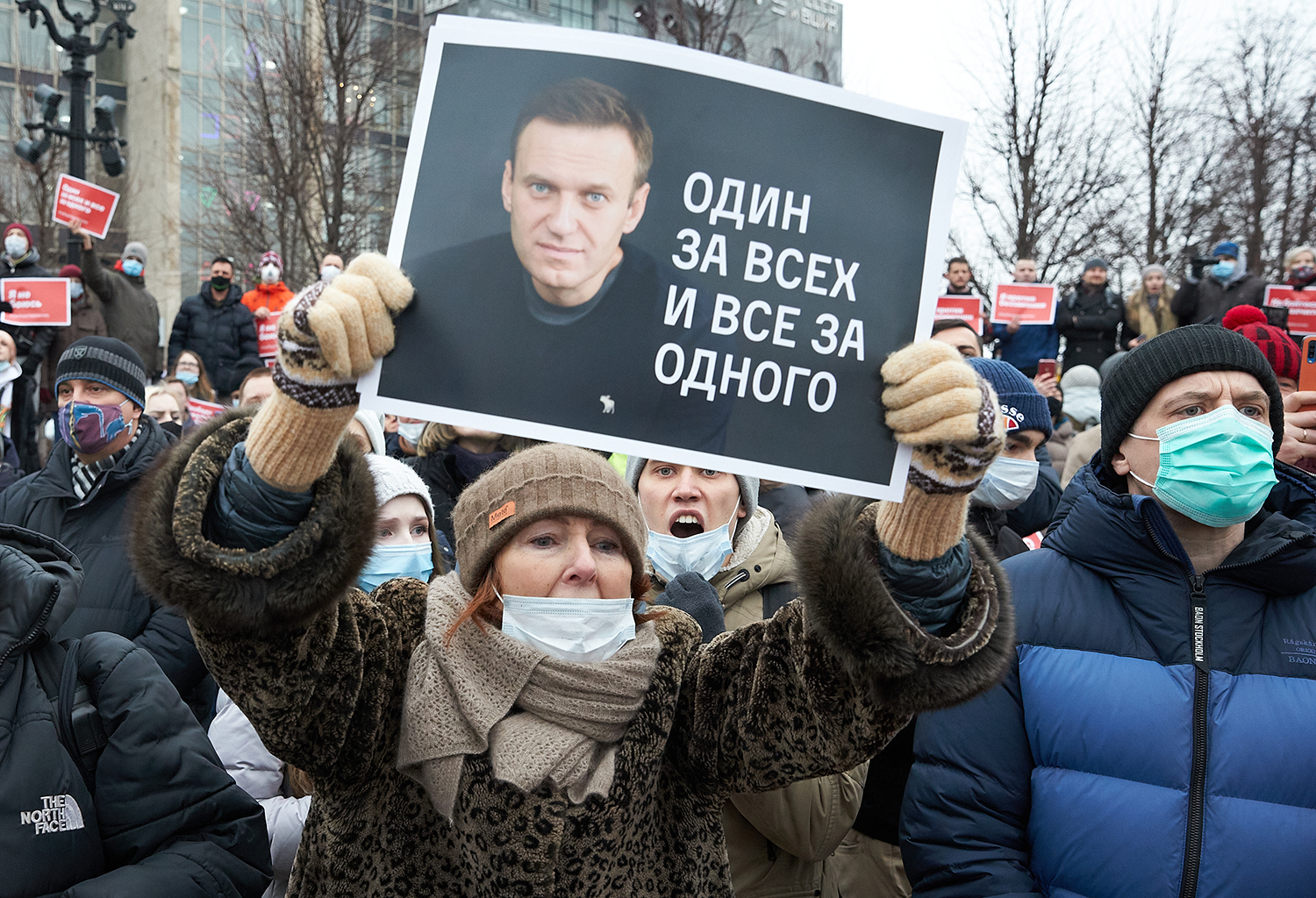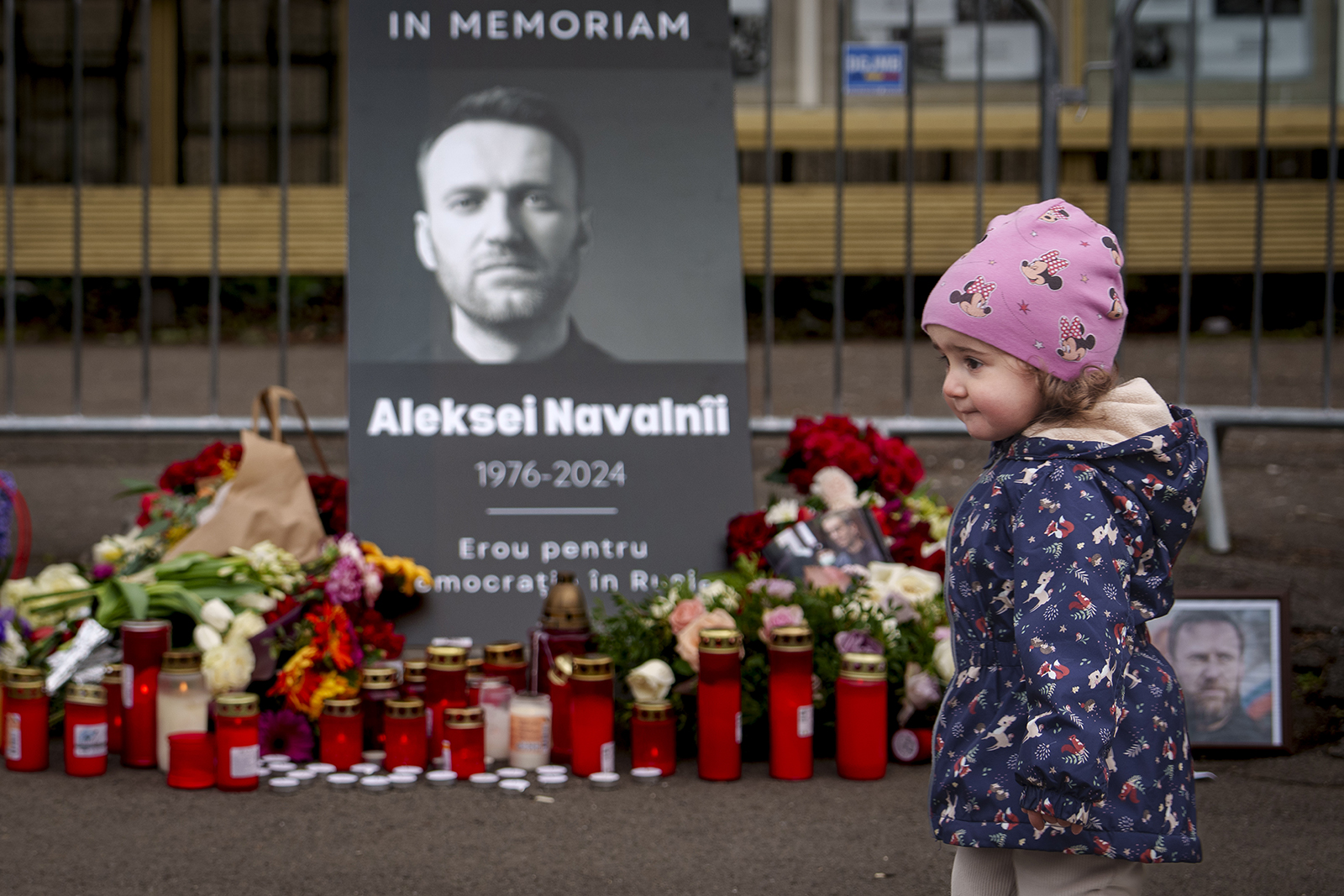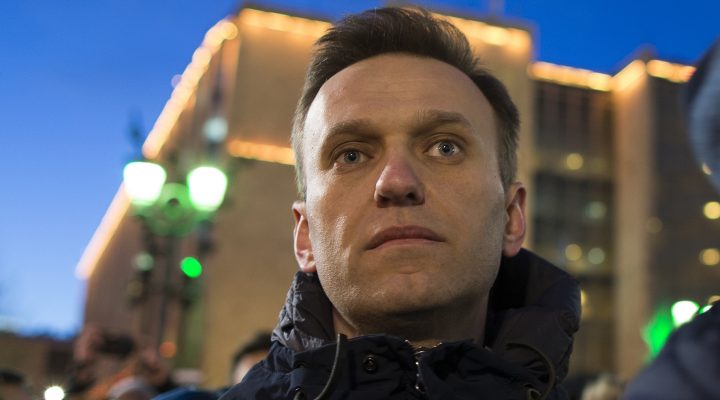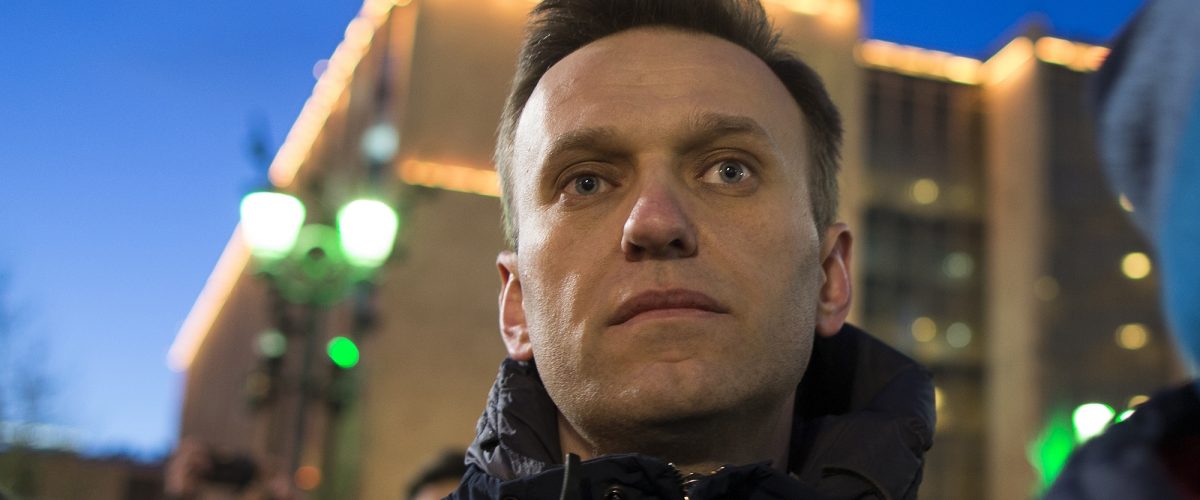The announcement of the death of Russian dissident Alexei A. Navalny on Feb. 16 sent me running to the iconic work, THE BLOODY THEATER OR MARTYRS MIRROR OF THE DEFENSELESS CHRISTIANS … COMPILED FROM VARIOUS AUTHENTIC CHRONICLES, MEMORIALS, AND TESTIMONIES, BY THIELEMAN J. van BRAGHT (1660).

Bill Leonard
The book traces the stories of martyrs from the early Christian centuries through the Inquisition and into the beginnings of the Protestant Reformation, with particular attention to the Anabaptist/Mennonite martyrs whose witness linked Christian faith and religious liberty. It begins with this classic, and now strangely contemporary, assertion:
OF THE GREATER DANGER THERE IS AT THIS TIME, THAN IN THE BLOODY AND DISTRESSING TIMES OF THE MARTYRS. These are sad times, in which we live; nay, truly, there is more danger now than in the time of our fathers, who suffered death for the testimony of the Lord. Few will believe this, because the great majority look to that which is external and corporeal, and in this respect it is now better, quieter and more comfortable; few only look to that which is internal and pertains to the soul, and on which everything depends, “for what is a man profited, if he shall gain the whole world, and lose his own soul? or what shall a man give .in exchange for his soul?” Matt. 16:26.
As if to illustrate the immediacy of that 17th-century testimony, The New York Times published a Feb. 16 editorial by columnist Nicholas Kristof titled “What Feckless Americans Can Learn from Navalny’s Bravery,” which begins: “Vladimir Putin’s Russia has just become even more bleak and soulless with the reported death in an Arctic prison of Aleksei Navalny, the 47-year-old dissident who showed immense bravery and humor as he tried to bring democracy to his homeland.”
“Navalny was Russia’s foremost dissident and opposition leader but also emerged as something of a Mandela of our age.”
Kristof continues: “Navalny was Russia’s foremost dissident and opposition leader but also emerged as something of a Mandela of our age. Despite being poisoned and repeatedly punished with long bouts of isolation in remote prisons, Navalny stood unbroken. He continued to mock Putin and denounce the invasion of Ukraine.”
Then Kristof turns prophetic: “No wonder Navalny is reported dead. So many brave Russians — journalists, lawyers, political figures — have died after challenging the authorities. It’s baffling how many Americans have responded in the opposite way. By acting as Putin’s poodles.”
Whew!
The day after the announcement of Navalny’s death, The Economist wrote: “For Russians opposed to Mr. Putin’s regime, Mr. Navalny represented hope. His death, although hardly unexpected, will make him a martyr.” The article cited exiled Russian dissident Mikhael Zygar, who declared: “Now Alexei Navalny will be with us forever as an ideal role model. There are so few unblemished heroes in Russian history — now we have one.”
Navalny lived years under threat of death for his criticism of Putin’s dictatorial reign. In 2020, on a flight from Siberia, he was overcome by the effects of Novichok, a poison nerve agent. Friends managed to get him to Berlin, where he recovered after three weeks in a coma.
In January 2021, he returned to Russia. At his trial the following February, Navalny told the court, “To live is to risk it all. Otherwise, you are just an inert chunk of randomly assembled molecules drifting wherever the universe blows you.”

A woman holding up a placard reading “Navalny is not afraid and I’m not afraid” attends a rally in support of jailed opposition leader Alexei Navalny on January 23, 2021, in Moscow, Russia. (Photo by Oleg Nikishin/Getty Images)
Sentenced to 19 years in prison, he wound up in a Russian Artic gulag.
On Jan. 17, 2024, three years after his return to Russia, Navalny wrote on social media: “I don’t want to give up either my country or my beliefs. I cannot betray either the first or the second. If your beliefs are worth something, you must be willing to stand up for them. And if necessary, make some sacrifices.”
“I am not afraid, don’t you be afraid either.”
As news of his death spread, multiple memorials sprang up across Russia, and hundreds of participants remain “detained” by police. Some even posted photos of Navalny holding a sign stating: “I am not afraid, don’t you be afraid either,” words worth affirming in today’s America.
On Feb. 16, Catholic News Agency reporter Jonah McKeown released an article documenting the Russian martyr’s Christian faith. At his 2021 trial, Navalny asserted: “If you want, I’ll talk to you about God and salvation. I’ll turn up the volume of heartbreak to the maximum, so to speak. The fact is that I am a Christian, which usually rather sets me up as an example for constant ridicule in the Anti-Corruption Foundation, (which he founded) because mostly our people are atheists and I was once quite a militant atheist myself.”
He continued, “But now I am a believer, and that helps me a lot in my activities, because everything becomes much, much easier. I think about things less. There are fewer dilemmas in my life, because there is a book in which, in general, it is more or less clearly written what action to take in every situation. It’s not always easy to follow this book, of course, but I am actually trying. And so, as I said, it’s easier for me, probably, than for many others, to engage in politics.”
Navalny then turned to the Sermon on the Mount: “Blessed are those who hunger and thirst for righteousness, for they will be satisfied. I’ve always thought this particular commandment is more or less an instruction to activity.”
Alexei Navalny was not martyred because he was a Christian. Rather, he was a Christian martyred for his dissent against a dictatorial political autocrat. The same might be said of Martin Luther King Jr’s martyrdom for dissenting against the political autocracy ensconced in Jim Crow America.

A child walks by a poster of Russian opposition leader Alexei Navalny, surrounded by candles, outside the Russian embassy in Bucharest, Romania, Sunday, Feb. 18, 2024. Navalny, who crusaded against official corruption and staged massive anti-Kremlin protests as President Vladimir Putin’s fiercest foe, died Friday, aged 47, in the Arctic penal colony where he was serving a 19-year sentence, Russia’s prison agency said.(AP Photo/Vadim Ghirda)
Given his Christian commitment, the impact of Navalny’s death becomes even more poignant because it occurred on the threshold of the Lenten season, a time when Christians are called not only to confront our shared mortality (“Remember my sister/brother that you are dust, and to dust you shall return.”), but also to “prepare our hearts,” to walk the way of the Cross with Jesus, martyred “for us and our salvation” by yet another autocratic regime. We’d better learn to do that given the state of the world and our own country in Lent 2024.
On Feb. 16, 2024, Alexei Navalny, in his 47th year, husband, father, political dissident, practicing Christian and Putin nemesis, became an international martyr, his life at once celebrated and mourned across the world. To say the least, that terrible event occurred amid a series of globe-shocking events, including:
- The second anniversary of Putin’s war of conquest against Ukraine. Entering the war’s third year, the Ukrainian army is literally running out of ammunition, in large part because the U.S. Congress has not passed a needed funding bill.
- Mike Johnson, speaker of the U.S. House of Representatives and a self-acknowledged Baptist, refuses to bring a Senate-approved bill to the floor that would increase U.S. support for Ukraine. Johnson is said to be following that directive from a presidential candidate named Donald Trump.
- Barely a week before Navalny’s death, candidate Trump told his supporters that should he be elected president and NATO countries did not pay their proper accounts to that organization, “I would not protect you. In fact, I would encourage them (Russia) to do whatever the hell they want. You got to pay. You got to pay your bills.” Such an action, many conservatives and liberals insist, could invoke a global conflict.
- Alexei Navalny’s martyrdom was surely Vladimir Putin’s retribution for the dissident’s articulate witness against the Russian autocrat. Sadly, the word “retribution” has become something of a mantra for one candidate in America’s developing presidential campaign. Actually, it’s already happening.
In a Feb. 19 essay, New York Times columnist and outspoken evangelical David French warned of the danger of retribution against Americans who speak out against increasing threats of autocracy. He asked readers, “Are you now aware how much of the constant threat of violence, principally from MAGA sources, is now warping American politics?”
French acknowledged his own family “has experienced terrifying nights and terrifying days over the last several years.” These include “death threats, a bomb scare, a clumsy swatting attempt and doxing by white nationalists,” retribution for what he has said and written publicly.
May God protect David French and his courageous family.
Let’s be honest, Lent 2024 occurs in a dangerous time, even in the land of the free and the home of the threatened. It calls us to prepare ourselves for life in such a time as this. The church has been there before, as Paul audaciously described in 2 Corinthians 6:4-10, wonderfully translated in the New English Bible:
As God’s servants, we try to recommend ourselves in all circumstances by our steadfast endurance: in hardships and dire straits; flogged, imprisoned, mobbed, overworked, sleepless, starving. We recommend ourselves by the innocence of our behavior, our grasp of truth, our patience and kindliness; by the gifts of the Holy Spirit, by sincere love, by declaring the truth, by the power of God. We wield the weapons of righteousness in right hand and left. Honor and dishonor, praise and blame, are alike our lot: we are the impostors who speak the truth, the unknown ones whom everyone knows; dying we still live on; disciplined by suffering, we are not done to death; in our sorrows we have always cause for joy; poor ourselves, we bring wealth to many; penniless, we own the world.
Then and now, living like that can get us martyred. It might also encourage us to live out a martyr’s mantra, “I’m not afraid, don’t you be afraid either.”
Hope!
Bill Leonard is founding dean and the James and Marilyn Dunn professor of Baptist studies and church history emeritus at Wake Forest University School of Divinity in Winston-Salem, N.C. He is the author or editor of 25 books. A native Texan, he lives in Winston-Salem with his wife, Candyce, and their daughter, Stephanie.


